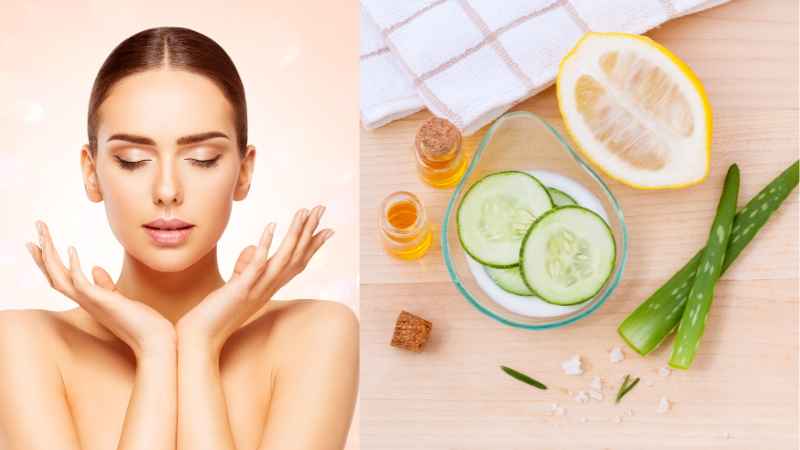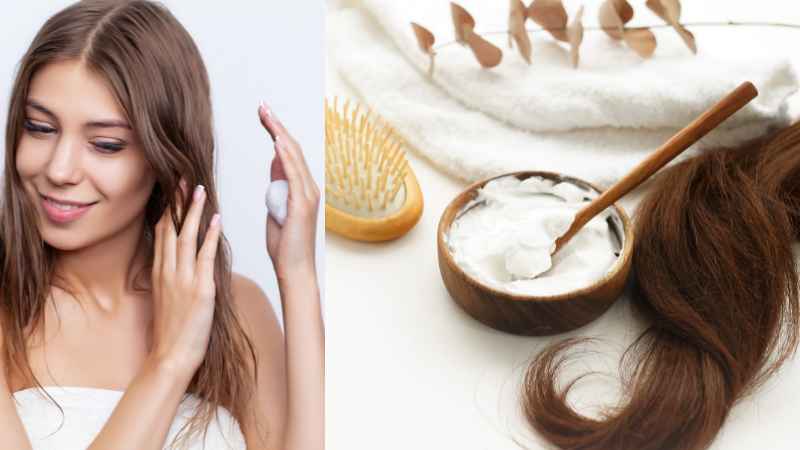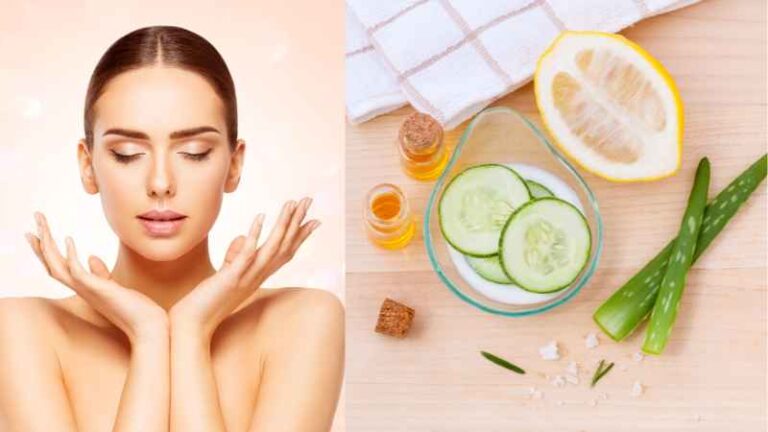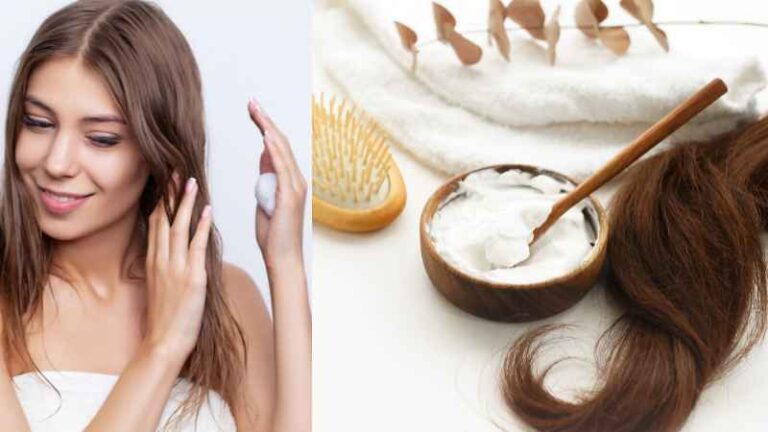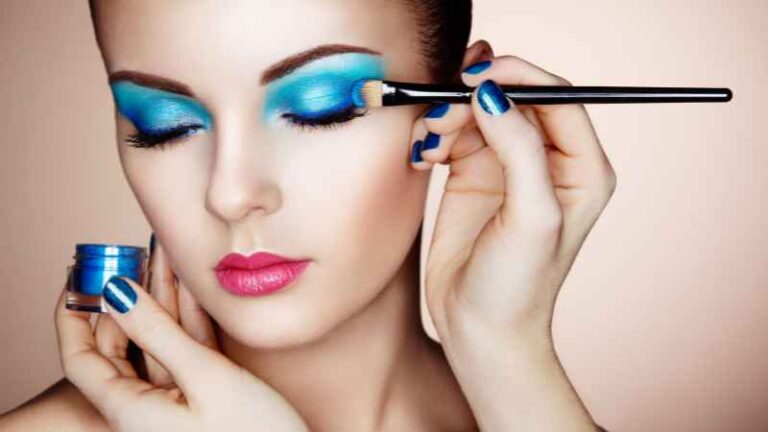Skincare is not just about beauty; it’s about maintaining the health and vitality of your largest organ—your skin. A flawless complexion isn’t merely a surface-level goal; it reflects the overall well-being of your skin. A healthy, glowing complexion is often a testament to a good skincare routine and a reflection of inner health.
Overview of the Guide: This comprehensive guide, “Flawless Complexion: Your Ultimate Guide,” is a holistic approach to achieving and maintaining a flawless complexion. It covers various topics, from understanding the fundamentals of skincare to delving into the intricacies of various skin types, addressing specific skincare needs, exploring advanced techniques, and even considering lifestyle factors that significantly impact skin health. The guide aims to be an all-encompassing resource, catering to both skincare beginners and enthusiasts, providing actionable steps and valuable insights.
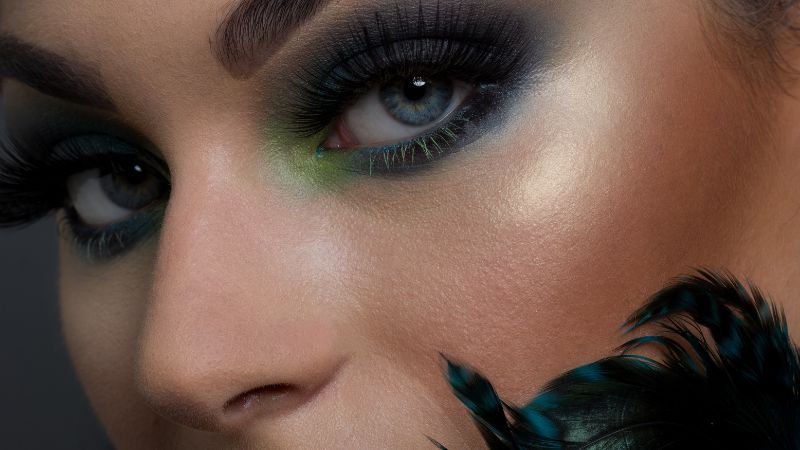
Understanding Skin Types
Explanation of Different Skin Types: Understanding your skin type is the cornerstone of effective skincare. The primary categories of skin types vary—oily, dry, combination, and sensitive. Each type has unique characteristics, such as excess sebum production in oily skin, lack of moisture in dry skin, a mix of oily and dry areas in combination skin, and heightened reactivity in sensitive skin.
How to Identify Your Skin Type: Identifying your skin type involves observation and analysis. Oily skin is shiny, especially in the T-zone (forehead, nose, and chin). Dry skin often feels tight, rough, or flaky. Combination skin might have oily patches in the T-zone and dryness elsewhere. Sensitive skin is prone to redness, itching, or reactions to certain products.
Tailoring Skincare Routines Based on Skin Type: Once you’ve identified your skin type, the next step is customizing your skincare routine accordingly. For instance, those with oily skin might benefit from non-comedogenic products and lightweight, oil-free moisturizers. Dry skin requires rich, hydrating creams, while combination skin benefits from a balance of products for different areas. Sensitive skin necessitates gentle, fragrance-free, and hypoallergenic products to avoid irritation.
Understanding your skin type is crucial, as it guides the selection of appropriate products, techniques, and treatments for your skincare routine. This customized approach ensures that you address your skin’s specific needs effectively.
This guide is designed to help you navigate these distinctions, offering insights, tips, and product recommendations tailored to each skin type to pave the way toward achieving that coveted flawless complexion.
Skincare Fundamentals
Cleansing
Importance of Cleansing: Cleansing is the foundational step in any skincare routine. It’s essential for removing impurities, excess oil, sweat, and environmental pollutants that accumulate on the skin’s surface throughout the day. Regular cleansing prevents breakouts and preps the skin to absorb subsequent skincare products better.
Different Types of Cleansers and Their Uses:
- Gel Cleansers: Ideal for oily and acne-prone skin, they effectively remove excess oil without over-drying.
- Cream Cleansers: Perfect for dry or sensitive skin, they provide hydration while cleansing.
- Foaming Cleansers: Good for all skin types, especially for thoroughly removing impurities.
Proper Cleansing Techniques for Different Skin Types:
- Oily Skin: Use a gel or foaming cleanser twice daily to control excess oil production.
- Dry Skin: Opt for cream-based or hydrating cleansers, limiting washing to once daily to avoid stripping natural oils.
- Combination Skin: Use different cleansers for oily and dry areas to balance skin.
- Sensitive Skin: Choose gentle, fragrance-free cleansers and avoid harsh scrubbing to prevent irritation.
Exfoliation
Benefits of Exfoliation: Exfoliation is crucial for sloughing off dead skin cells, promoting cell turnover, and revealing a fresher, brighter complexion. It helps unclog pores, prevents breakouts, and allows skincare products to penetrate better.
Types of Exfoliants (Physical vs. Chemical):
- Physical Exfoliants: These use granules or particles to scrub away dead skin cells physically. Examples include sugar scrubs or exfoliating brushes.
- Chemical Exfoliants contain acids (e.g., AHAs, BHAs) that dissolve dead skin cells. They’re gentler and often more effective for various skin types.
How Often to Exfoliate and Precautions to Take:
- Frequency: 1-3 times a week is sufficient for most skin types. Adjust based on skin sensitivity and reaction.
- Precautions: Avoid over-exfoliation, which can cause irritation or worsen skin conditions. Always follow with sunscreen, especially after using chemical exfoliants, as they can increase skin sensitivity to the sun.
Understanding the significance of proper cleansing and exfoliation and implementing suitable techniques based on your skin type will lay a solid foundation for a healthy skincare routine, aiding in achieving that coveted flawless complexion.
Moisturizing
Importance of Moisturizing: Moisturizing is crucial for all skin types as it helps maintain the skin’s hydration, strengthens its natural barrier, and prevents water loss. It contributes to a supple, smooth complexion and can regulate oil production, even for oily skin types.
Choosing the Right Moisturizer for Your Skin Type:
- Oily Skin: Look for oil-free, non-comedogenic, or gel-based moisturizers.
- Dry Skin: Opt for heavier, cream-based moisturizers with ingredients like hyaluronic acid or shea butter for intense hydration.
- Combination Skin: Use different moisturizers for various areas to balance hydration levels.
- Sensitive Skin: Choose fragrance-free, hypoallergenic, or soothing ingredients like aloe vera.
Techniques for Effective Moisturizing:
- Apply on Damp Skin: After cleansing, moisturize to slightly damp skin to lock in moisture.
- Use Gentle Movements: Pat or lightly massage the moisturizer into the skin, avoiding harsh rubbing, especially for sensitive skin.
- Consistency: Apply moisturizer twice daily, in the morning and evening, as a routine.
More Post : The Science of Skincare: Ingredients That Work
Sun Protection
Significance of Sun Protection: Protecting your skin from the sun’s harmful UV rays is vital for preventing premature aging and sunburn and lowering the risk of skin cancer. Even on cloudy days, UV rays can cause damage.
Types of Sunscreen and Their SPF:
- Broad-Spectrum Sunscreens: These protect against both UVA and UVB rays.
- SPF (Sun Protection Factor): Higher SPF numbers offer more protection. SPF 30 is typically recommended as it blocks around 97% of UVB rays.
How to Apply and Reapply Sunscreen for Maximum Protection:
- Application: Apply sunscreen generously 15-30 minutes before sun exposure to all exposed skin, including often-missed areas like ears and neck.
- Reapplication: Reapply every two hours or more frequently if swimming or sweating. Always reapply after toweling off.
Understanding the importance of moisturizing, choosing the right product, and integrating proper sun protection measures are essential steps toward maintaining skin health and achieving a flawless complexion. When consistently applied, these practices contribute significantly to healthy, glowing skin.
Targeted Skincare Tips
Acne-Prone Skin
Causes of Acne and Breakout Prevention: Acne often stems from excess oil production, clogged pores, bacteria, inflammation, and hormonal fluctuations. Prevention involves:
- Regular cleansing to remove excess oil and impurities.
- Avoiding pore-clogging products and makeup.
- Maintaining a healthy diet and managing stress to control hormonal imbalances.
Skincare Ingredients to Look for and Avoid:
- Look for Ingredients like salicylic acid, benzoyl peroxide, niacinamide, or tea tree oil that help control oil and fight acne.
- Avoid Heavy, pore-clogging ingredients like mineral oil or certain silicones.
Treatment Options for Acne-Prone Skin:
- Topical Treatments: Over-the-counter gels or creams with acne-fighting ingredients.
- Prescription Medications: For severe acne, dermatologist-prescribed treatments like oral medications or topical retinoids.
- Professional Treatments: Chemical peels, laser therapy, or microdermabrasion can be beneficial.
Anti-Aging Techniques
Understanding Aging Effects on the Skin: Aging leads to reduced collagen production, causing wrinkles, fine lines, sagging, and decreased skin elasticity. Factors like sun exposure, lifestyle habits, and genetics influence aging.
Skincare Products and Practices for Anti-Aging:
- Retinoids: Encourage collagen production and minimize wrinkles.
- Vitamin C Acts as an antioxidant, brightens skin and aids collagen synthesis.
- Hydration: Moisturizers with hyaluronic acid help plump the skin and reduce the appearance of fine lines.
Lifestyle Habits for Youthful Skin:
- Sun Protection: Consistent use of sunscreen to prevent photoaging.
- Healthy Diet: Antioxidant-rich foods like fruits, vegetables, and omega-3 fatty acids support skin health.
- Adequate Sleep: Promotes skin repair and rejuvenation.
Understanding the causes of acne, adopting prevention strategies, and incorporating anti-aging practices in your skincare routine is essential for targeting specific skin concerns and maintaining skin health and vibrancy over time. Combined with consistent care, these practices can significantly contribute to a radiant and flawless complexion.
Sensitive Skin Care
Identifying and Dealing with Sensitive Skin Issues: Sensitive skin is prone to reactions like redness, itching, burning, or dryness. Identification involves noting reactions to various products, environmental factors, or specific ingredients. Dealing with sensitivity includes:
- Patch testing new products on a small area before full application.
- Avoiding harsh or fragranced products that may trigger reactions.
Gentle Skincare Products and Routines:
- Cleansers: Opt for fragrance-free, gentle cleansers to avoid stripping the skin.
- Moisturizers: Use hypoallergenic, non-comedogenic, and soothing moisturizers with ingredients like ceramides or aloe vera.
- Avoid Harsh Techniques: Use lukewarm water, pat dry the skin, and avoid rough exfoliation.
Managing Sensitivity and Avoiding Irritants:
- Sun Protection: Sunscreens formulated for sensitive skin with physical blockers like zinc oxide or titanium dioxide can prevent irritation.
- Minimize Exposure to Irritants: Limit exposure to extreme temperatures, harsh winds, or certain fabrics that can aggravate sensitive skin.
Advanced Skincare Techniques-Serums and Treatments
Understanding the Purpose of Serums: Serums are highly concentrated formulations targeting specific skin concerns. They contain active ingredients like antioxidants, hyaluronic acid, or retinol that penetrate deeper into the skin.
Different Types of Serums and Their Benefits:
- Hydrating Serums: Contain ingredients like hyaluronic acid to plump and hydrate the skin.
- Antioxidant Serums: Protect the skin from environmental damage and premature aging.
- Brightening Serums: Include vitamin C to improve skin tone and reduce dark spots.
Incorporating Treatments for Specific Skin Concerns:
- Acne Treatment Serums: Utilize ingredients like salicylic acid or benzoyl peroxide.
- Anti-Aging Serums: Incorporate retinoids or peptides for minimizing wrinkles and fine lines.
- Soothing Serums: Include ingredients like chamomile or green tea for calming sensitive skin.
Utilizing gentle, sensitive-skin-friendly products and integrating advanced techniques like targeted serums can significantly improve skin health and address specific concerns, ensuring a more resilient and balanced complexion for sensitive skin types.
Masks and Treatments
Types of Facial Masks and Their Uses:
- Clay Masks: Ideal for oily skin, they help draw out impurities and excess oil.
- Sheet Masks: Hydrating and refreshing, suitable for all skin types.
- Gel Masks: Soothe and hydrate the skin, often used for sensitive or dry skin.
- Exfoliating Masks: Remove dead skin cells and brighten complexion.
- Peel-off Masks: Help in unclogging pores and removing blackheads.
DIY and Store-Bought Treatment Options:
- DIY Masks: Use ingredients like honey, yogurt, avocado, or oats for natural and cost-effective treatments.
- Store-Bought Masks: Choose masks based on your skin type and specific concerns, such as hydration, acne-fighting, or anti-aging properties.
Frequency and Best Practices for Using Masks:
- Hydration Masks: Can be used 1-2 times a week for added moisture.
- Exfoliating Masks: Limit usage to 1-2 times weekly to avoid over-exfoliation.
- General Practices: Always apply masks to clean skin, follow recommended usage time, and remove gently without tugging on the skin.
Lifestyle Factors for Healthy Skin-Diet and Nutrition
Impact of Diet on Skin Health: Diet significantly influences skin health. Nutrient-rich foods contribute to a radiant complexion, while poor dietary choices can lead to skin issues like acne or dullness.
Foods that Promote Healthy Skin:
- Antioxidant-Rich Foods: Berries, dark leafy greens, and nuts help fight free radicals and promote skin repair.
- Omega-3 Fatty Acids: Found in fatty fish, flaxseeds, and walnuts, they aid in maintaining skin elasticity.
- Vitamins A and C: Carrots, sweet potatoes, oranges, and strawberries help in collagen production and skin repair.
Hydration and Its Effect on the Skin:
- Hydration plays a crucial role in maintaining skin health. Drinking an adequate amount of water keeps the skin hydrated plump, and supports its natural functions.
- Hydrating sources like herbal teas, fruits, and vegetables contribute to hydration.
Considering the right masks and treatments and paying attention to lifestyle factors like a nutritious diet and proper hydration contribute to maintaining and enhancing skin health, resulting in a more vibrant and healthy complexion.
Sleep and Stress Management
Importance of Sleep for Skin Rejuvenation: Adequate sleep is crucial for skin rejuvenation as it’s during sleep that the body repairs and regenerates cells. Lack of sleep can increase stress hormones, contributing to skin issues like dullness, fine lines, and reduced elasticity.
Managing Stress for Better Skin Health: Stress can exacerbate skin conditions like acne, eczema, and psoriasis. Managing stress through practices like meditation, exercise, or engaging in hobbies benefits mental health and positively impacts skin health.
Relaxation Techniques for Stress Relief:
- Meditation and Mindfulness: Deep breathing exercises or guided meditation can significantly reduce stress levels.
- Yoga or Exercise: Physical activity releases endorphins, reducing stress and promoting better skin health.
- Aromatherapy or Relaxing Baths: Essential oils or calming baths can aid in relaxation and reducing stress.
Building a Personalized Skincare Routine
Steps to Create a Tailored Skincare Routine:
- Assess Your Skin: Understand your skin type, concerns, and goals.
- Incorporate Products and Practices: Use the knowledge gained from this guide to select appropriate products and techniques.
- Layering Products: Apply products correctly, from lightest to heaviest textures.
- Morning and Night Routine: Create separate routines for morning and evening, focusing on different goals.
Conclusion
Recap of Key Points: This guide has provided insights into understanding skin types, skincare fundamentals, targeted tips for specific concerns, advanced techniques, and lifestyle factors crucial for achieving a flawless complexion.
Encouragement and Motivation for Achieving a Flawless Complexion: Consistent and tailored skincare practices, along with attention to lifestyle factors, can contribute to healthier, glowing skin. Embrace the journey and progress.
Final Tips and Reminders:
- Prioritize sunscreen for skin protection.
- Listen to your skin and adjust your routine as needed.
- Patience is key; results take time.
This guide empowers you to create a personalized skincare routine, embrace consistency, and focus on holistic well-being to attain and maintain a flawless complexion.

